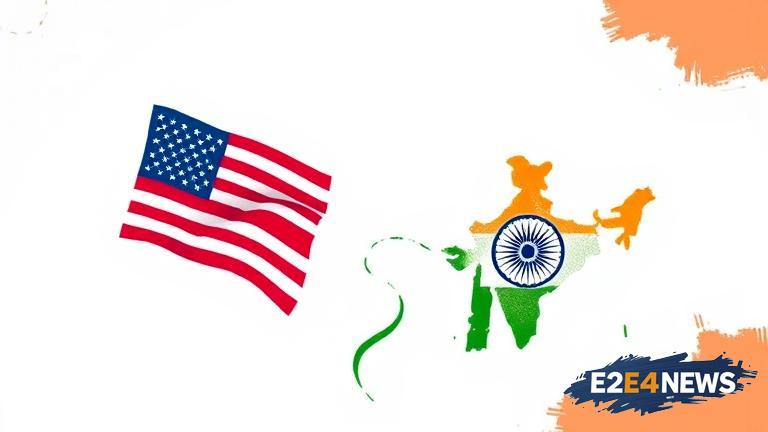The United States has announced that it will impose a 25% tariff on India from August 1, as stated by President Donald Trump. This move is expected to have significant implications for trade relations between the two countries. The tariff imposition is a result of the long-standing trade tensions between the US and India, with the US accusing India of unfair trade practices. The US has been seeking greater market access for its goods and services in India, while India has been resisting such demands. The trade tensions between the two nations have been escalating over the past few years, with the US imposing tariffs on Indian goods such as steel and aluminum. India has retaliated by imposing tariffs on US goods such as agricultural products and chemicals. The latest tariff imposition is expected to affect a wide range of Indian goods, including textiles, pharmaceuticals, and chemicals. The move is also expected to have a significant impact on the Indian economy, which is already facing challenges such as a slowdown in growth and a widening trade deficit. The Indian government has expressed its disappointment and concern over the US decision, and has vowed to take all necessary measures to protect the interests of Indian industries and exporters. The US decision has also been criticized by Indian industry leaders, who have warned that it could lead to a decline in exports and a loss of jobs. The trade tensions between the US and India are not only affecting bilateral trade but also having a broader impact on the global economy. The imposition of tariffs is expected to lead to higher prices for consumers and reduced competitiveness for Indian industries. The move is also expected to affect the ongoing negotiations between the US and India on a trade deal. The US has been seeking a comprehensive trade deal with India, which would provide greater market access for US goods and services. However, the latest tariff imposition is expected to make it more difficult to reach a deal. The Indian government has been seeking a waiver from the US tariffs, but so far, there has been no indication that the US is willing to grant such a waiver. The trade tensions between the US and India are also having a political impact, with the Indian government facing criticism from opposition parties for its handling of the situation. The opposition parties have accused the government of failing to protect the interests of Indian industries and exporters. The US decision has also been criticized by other countries, including China, which has warned that the move could lead to a trade war. The trade tensions between the US and India are expected to continue in the coming months, with both sides engaging in negotiations to try to resolve their differences. However, the latest tariff imposition has made it more difficult to reach a deal, and the situation remains uncertain. The Indian government has announced that it will impose retaliatory tariffs on US goods, which is expected to further escalate the trade tensions. The trade war between the US and India is expected to have a significant impact on the global economy, and could lead to a decline in trade and investment. The situation is being closely watched by other countries, which are concerned about the impact of the trade tensions on the global economy. The US and India have a long-standing trade relationship, with the US being one of India’s largest trading partners. However, the trade tensions between the two nations have been escalating over the past few years, and the latest tariff imposition is expected to further strain the relationship.
